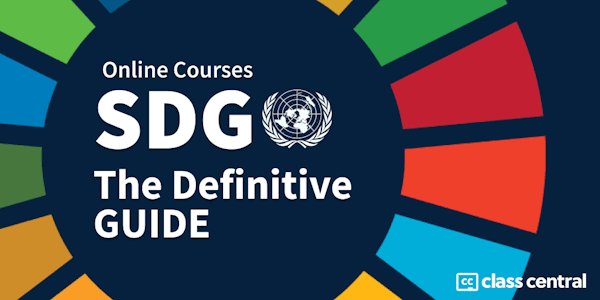Public Health Perspectives on Sustainable Diets
Johns Hopkins University via Coursera
-
565
-
- Write review
Overview
What we eat and how we produce that food have significant effects on human health and the sustainability of our planet. But what is a ‘sustainable’ diet? A sustainable diet, as defined by the FAO, promotes health and well-being and provides food security for the present population while sustaining human and natural resources for future generations. This short course looks at the urgent need to address the sustainability of our food systems, including better understanding the complex relationship between diet and climate change. We’ll explore current research on dietary shifts needed in high, middle, and low-income countries to achieve both sustainability and food security goals and discuss evidence-based strategies to promote sustainable diets.
This course is offered by the Johns Hopkins Center for a Livable Future and draws from our graduate-level food systems curriculum at the Bloomberg School of Public Health. You may also be interested in our eight-week flagship Coursera course, “An Introduction to the US Food System: Perspectives from Public Health”.
Syllabus
- Introduction to Food Systems Sustainability and Public Health
- Our food system is much more than a supply chain that brings food from the farm to your plate. What is a food system? How can thinking about food as a system help us understand and address the messy overlapping issues of diet, food production, planetary health and climate change? What does ‘sustainability’ mean, in the context of food systems, and is it the same as resilience? How has COVID-19 pandemic amplified the many challenges faced by vulnerable workers and consumers? Roni Neff addresses these questions – and many more – in this opening series of lectures.
- Sustainable Diets and Climate Change
- What defines a sustainable diet? Why do sustainable diets matter? And what might sustainable diets look like in the US and around the world? The answers may surprise you. In this engaging and thought-provoking set of lectures, Brent Kim will address these questions and explain recent research that compares the impact of different diets on greenhouse gas emissions and water use across 140 countries.
- Strategies for Advancing Sustainable Diets
- In our final week, we will explore sustainable diets through the lens of a public health practitioner and registered dietitian. In this series of lectures, we’ll considering nutritional needs and why it is difficult to define a ‘sustainable’ diet for everyone. Then we’ll share evidence-based strategies for communicating about sustainable diets and how different sectors can play a role in advancing change. We hope you have enjoyed this short course! Please be sure to complete the post-course survey and leave us feedback on the Coursera platform.
Taught by
Roni Neff, Becky Ramsing, Brent Kim and Pamela Rhubart Berg
Tags
Reviews
5.0 rating, based on 1 Class Central review
4.8 rating at Coursera based on 182 ratings
Showing Class Central Sort
-
This is an engaging and concise course on food systems and their public health and environmental implications. As a casual learner on the topic at this point, I learned a lot on the details of the growing problems emphasized and absorbed at least a thing or two on doing my little part in addressing what turns out to be an existential issue. Furthermore, the course is abound with ideas for interdisciplinary research. I am looking forward to enroll in the mentioned flagship course as soon as my time permits.





